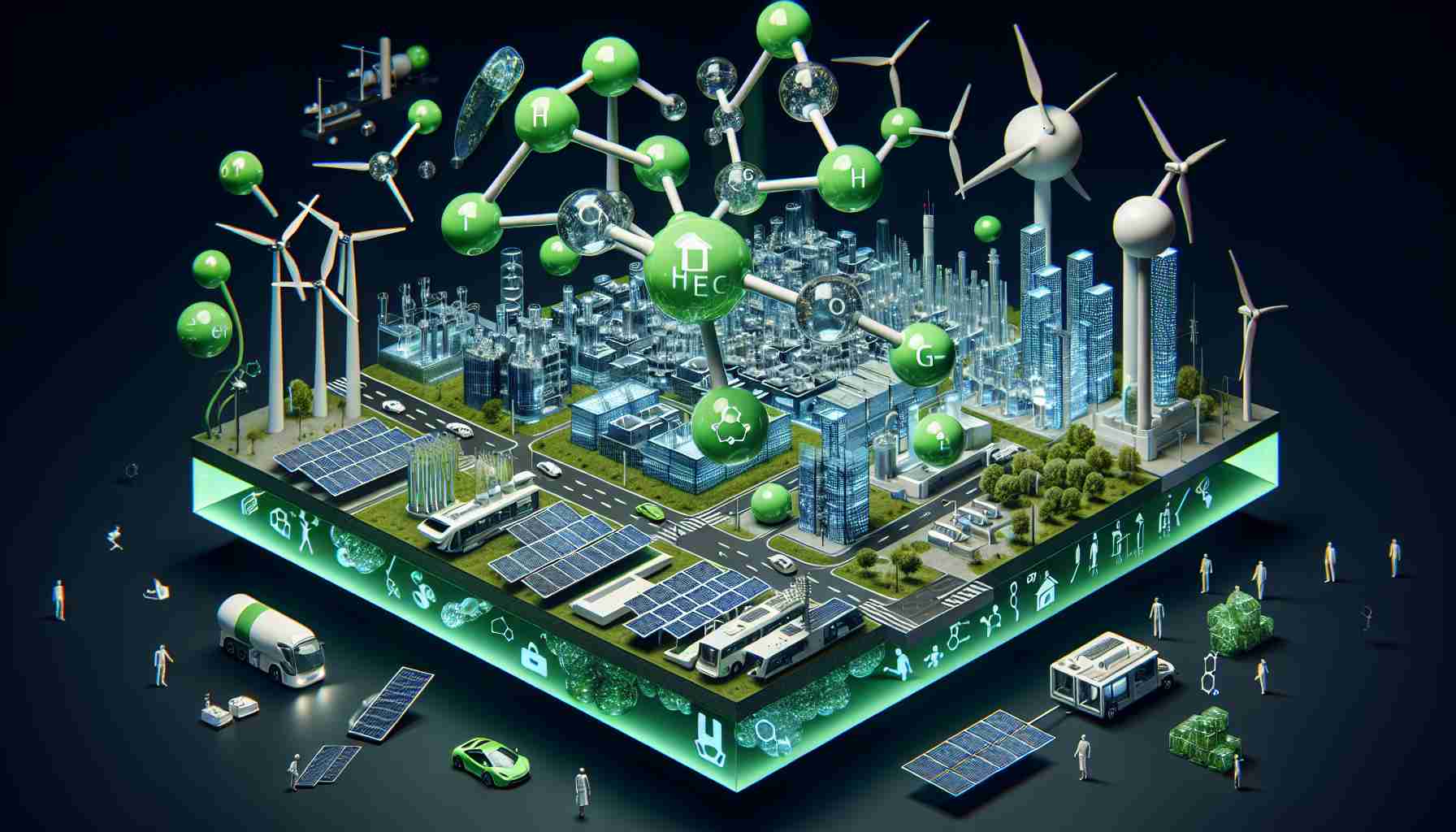
A New Approach to Harnessing Green Hydrogen
A dynamic initiative spearheaded by international organizations has sparked a fresh wave of momentum in the realm of green hydrogen development. Bringing together a diverse cohort of participants from around the globe, this innovative program seeks to revolutionize the energy landscape through the adoption of sustainable policies and practices aligned with global sustainability objectives.
Policy and Technological Advancements
The program places a strong emphasis on the crucial intersection of policy and technology, offering strategic insights into the essential frameworks required to propel green hydrogen production to new heights. By addressing policy challenges and fostering conducive environments, participants gain a deep understanding of how to navigate the evolving energy terrain with a focus on scalability and efficiency.
Elevating Standards and Certification
Elevating the discourse on standards and certification, the program underscores the significance of establishing robust practices to instill credibility and reliability within the hydrogen market. Through a series of engaging sessions and case studies, the importance of international alignment on certification becomes evident, laying the groundwork for seamless trade and enhanced environmental compliance.
Innovative Financing Mechanisms
The exploration of financing mechanisms for green hydrogen projects serves as a cornerstone of the program, shedding light on the challenges and opportunities inherent in this burgeoning sector. Experts offer valuable insights into project economics, emphasizing the role of government incentives and risk management strategies in attracting private investment and fostering sustainable growth.
Integrating Trade and Infrastructure
Delving into the realms of trade and infrastructure, the program delves into the regulatory and logistical frameworks necessary for the seamless integration of green hydrogen into the global economy. From discussions on the strategic role of green ports to the essential infrastructure requirements for sustainable water and land use, participants gain a comprehensive understanding of the pivotal role these elements play in shaping a greener, more resilient energy future.
Unlocking the Potential of Green Hydrogen for Sustainable Energy Solutions
The exploration of green hydrogen as a key player in the transition towards sustainable energy solutions has unveiled a myriad of opportunities and challenges that are crucial to address. In delving deeper into the topic, several key questions emerge, outlining the path towards harnessing the full potential of green hydrogen.
One of the fundamental questions revolves around the scalability of green hydrogen production. How can we accelerate the scaling up of green hydrogen projects to meet the increasing demand for clean energy sources? The answer lies in continued technological advancements, streamlined regulatory frameworks, and strategic partnerships that facilitate rapid deployment on a global scale.
Another pressing question pertains to the cost-effectiveness of green hydrogen. While the plummeting costs of renewable energy sources have made green hydrogen more competitive, challenges still exist in achieving cost parity with traditional fuels. How can we further drive down costs to make green hydrogen economically viable on a large scale? Innovative financing mechanisms, government incentives, and collaborative research efforts play a crucial role in addressing the cost challenges associated with green hydrogen production.
Furthermore, the integration of green hydrogen into existing trade networks and infrastructure poses a significant challenge. What infrastructural developments are necessary to support the widespread adoption of green hydrogen technologies? From establishing green hydrogen refueling stations to integrating hydrogen pipelines into existing gas networks, comprehensive infrastructure planning and investments are essential for creating a seamless transition to a hydrogen-based economy.
Advantages of green hydrogen abound, including its potential to decarbonize various sectors such as transportation, industry, and power generation. Green hydrogen offers a versatile energy carrier that can store and transport renewable energy efficiently, providing a sustainable solution for meeting energy demands while reducing greenhouse gas emissions.
Despite its promising prospects, green hydrogen also faces a set of disadvantages and controversies. Critics argue that the current production methods, primarily electrolysis powered by renewable energy, may not be cost-effective or efficient enough to compete with conventional fossil fuels. Additionally, concerns exist regarding the environmental impact of scaling up green hydrogen production, particularly in terms of water usage and land requirements for renewable energy installations.
In navigating the complexities of green hydrogen development, stakeholders must address key challenges such as technology maturity, cost competitiveness, infrastructure readiness, and regulatory frameworks to ensure a successful transition towards a more sustainable energy future.
For more information on the latest developments in green hydrogen technology and policy frameworks, visit Renewable Energy World.



